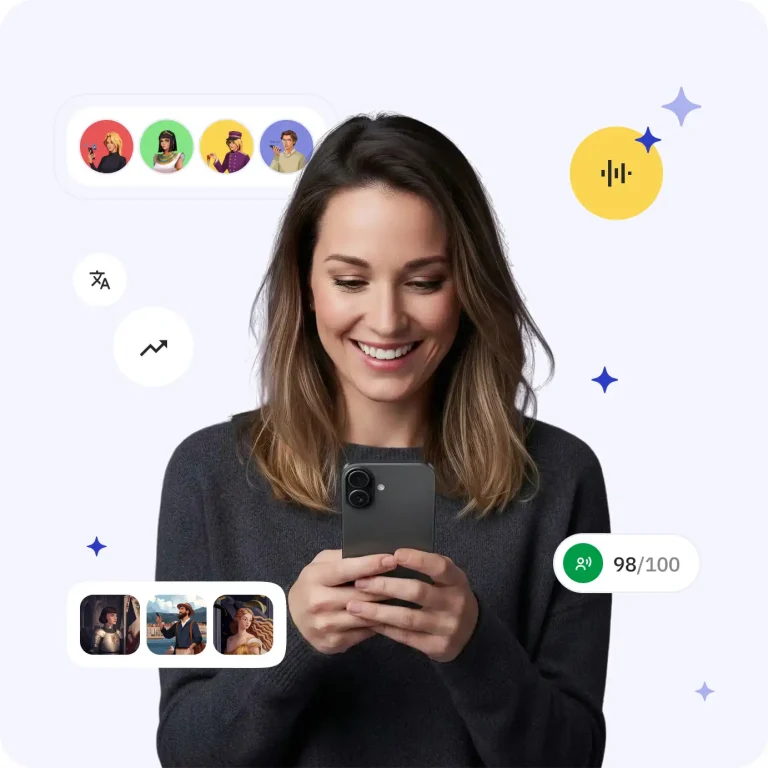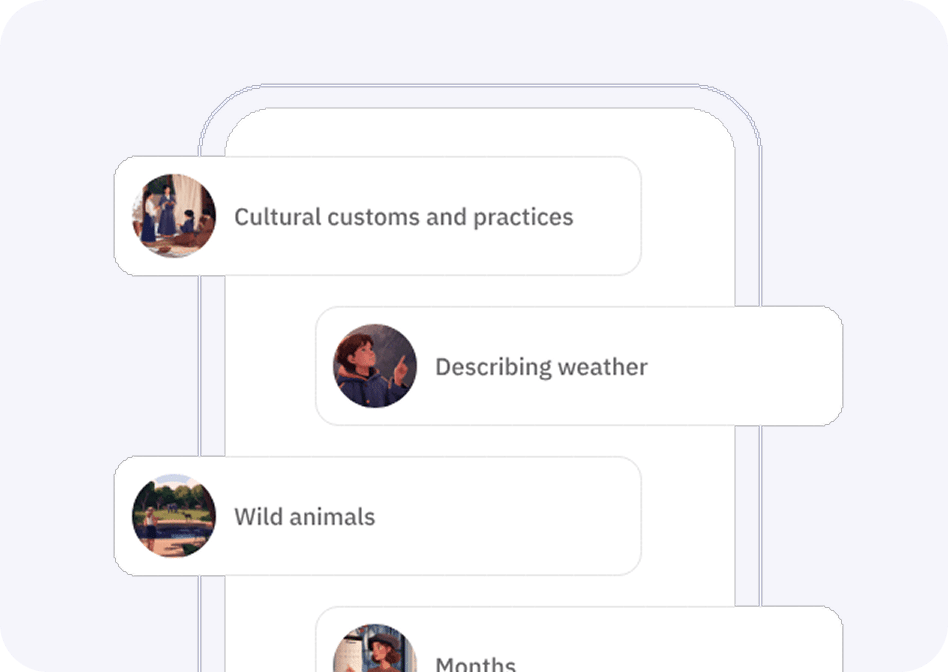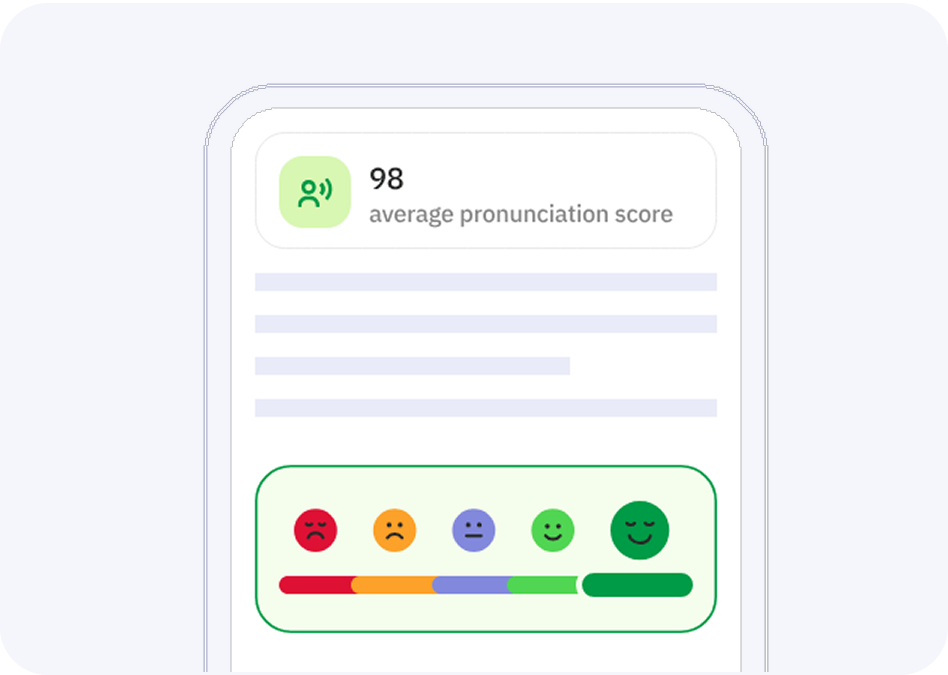20 Essential German Phrases and Daily Expressions
When embarking on learning a new language, acquainting oneself with common phrases and expressions is a vital step towards fluency. For those diving into the rich and rewarding pool of the German language, mastering daily phrases can make the difference between a stilted conversation and a flowing exchange. Whether you’re planning a trip to Berlin, fascinated by the culture, or just eager to expand your linguistic repertoire, these 20 German phrases and daily expressions will help you sound like a native in no time.

The talkpal difference

Personalized Education
Every student has a distinct style of acquiring knowledge. Through Talkpal technology, we analyze the study patterns of millions of users concurrently to build highly effective educational frameworks. These insights allow us to fully customize the lesson plans for every single user based on their specific interests and needs.

Cutting-Edge Technology
Our main mission is to lead the way in providing a unique study experience for every person. We accomplish this by leveraging the most recent innovations in technology to ensure you get the best AI-driven guidance available.

Making Learning Fun
We have transformed the educational process into a delightful activity. Since maintaining motivation in an online setting is often difficult, we developed Talkpal to be immersive and exciting. The experience is so compelling that many users prefer improving their language skills with our app instead of playing video games.
LANGUAGE LEARNING EXCELLENCE
The most efficient way to learn a language
Try Talkpal for freeGerman Phrases and Daily Expressions
1. “Guten Morgen” – Good Morning
A universal greeting to start the day, “Guten Morgen” is often accompanied by a smile and sets a positive tone for the morning’s conversations.
2. “Guten Tag” – Good Afternoon
When the sun reaches its zenith and you cross paths with someone, “Guten Tag” is the ideal phrase that fits the bill for the majority of your daytime encounters.
3. “Guten Abend” – Good Evening
As dusk falls and the evening begins to take shape, “Guten Abend” is what you say to acknowledge the end of the day’s official duties and the start of the evening’s relaxation or activities.
4. “Gute Nacht” – Good Night
When eyelids become heavy and it’s time to bid farewell to the world for the day, “Gute Nacht” is the phrase that gently ushers in a peaceful night’s rest.
5. “Wie geht es Ihnen?” – How are you? (Formal)
In a formal setting or when addressing someone with respect, “Wie geht es Ihnen?” shows courtesy and genuine interest in the other person’s well-being.
6. “Wie geht’s?” – How’s it going?
For a more casual and laid-back enquiry amongst friends or acquaintances, “Wie geht’s?” keeps the conversation friendly and open.
7. “Entschuldigung” – Excuse me/Sorry
Navigating through social situations often requires a polite interruption or an apology, and “Entschuldigung” can convey both with respectful clarity.
8. “Danke schön” – Thank you very much
Politeness never goes out of style, and “Danke schön” is your essential phrase to show heartfelt gratitude and appreciation.
9. “Bitte schön” – You’re welcome/Here you go
Whether expressing courtesy after being thanked or presenting an item to someone, “Bitte schön” is the eloquent response that completes the exchange.
10. “Ja”/”Nein” – Yes/No
The most fundamental responses in any language, “Ja” and “Nein” are succinct yet powerful words that you’ll find yourself using constantly.
11. “Ich verstehe (nicht)” – I (don’t) understand
Communication often hinges on understanding, and “Ich verstehe” or “Ich verstehe nicht” can quickly signal whether or not you are keeping up with the conversation.
12. “Sprechen Sie Englisch?” – Do you speak English?
Sometimes bridging the language gap is necessary, and “Sprechen Sie Englisch?” can be your bridge to clearer communication when needed.
13. “Kann ich Ihnen helfen?” – Can I help you?
Offering assistance is a kind gesture, and “Kann ich Ihnen helfen?” symbolizes your willingness to be of service or support.
14. “Ich hätte gern…” – I would like…
Articulating your desires or making a choice, especially in a restaurant, is best done with “Ich hätte gern…”, followed by whatever your heart (or stomach) desires.
15. “Wo ist die Toilette, bitte?” – Where is the bathroom, please?
A question of practicality, “Wo ist die Toilette, bitte?” is the phrase you’ll want at the ready when nature calls, especially when navigating through new places.
16. “Zahlen, bitte” – The check, please
A polite and concise way to indicate that you are ready to settle the bill, “Zahlen, bitte” is what you’d say after a satisfying meal or service.
17. “Das verstehe ich nicht” – I don’t understand that
When you encounter a phrase or a situation that’s unclear, “Das verstehe ich nicht” can help in getting the needed clarification.
18. “Ich spreche nur ein bisschen Deutsch” – I only speak a little German
Being upfront about your language proficiency with “Ich spreche nur ein bisschen Deutsch” can help set expectations and often elicits patience from the person you are speaking with.
19. “Könnten Sie das bitte wiederholen?” – Could you please repeat that?
“Könnten Sie das bitte wiederholen?” is the phrase to use when you’re asking someone to say something once again, ensuring you can grasp the information provided accurately.
20. “Es war schön, Sie kennenzulernen” – It was nice to meet you
As interactions draw to a close, “Es war schön, Sie kennenzulernen” is a pleasant and courteous way to express that you’ve enjoyed the meeting and leaves a lasting positive impression.
In conclusion, immersing yourself in the German language is not just about memorizing words; it’s about embracing its nuances and day-to-day usability. By integrating these 20 phrases into your vocabulary, you’ll improve your conversational skills and get closer to thinking and speaking like a true Deutsch speaker. Practice them regularly, and soon enough, you’ll find these phrases rolling off your tongue as naturally as a native. Viel Erfolg! (Good luck!)
The most efficient way to learn a language
Try Talkpal for freeFrequently Asked Questions
Why is it beneficial to learn these common German expressions and phrases?
Can I use informal phrases like "Wie geht's?" with anyone I meet in Germany?
What is a polite way to ask someone to repeat something in German?
Is it necessary to always say "Danke schön" and "Bitte schön" during interactions?
How do I clearly convey that I do not fully understand German during a conversation?
Can I use English if I'm struggling to communicate in German?
What phrase should I use to politely request the bill at a restaurant in Germany?







